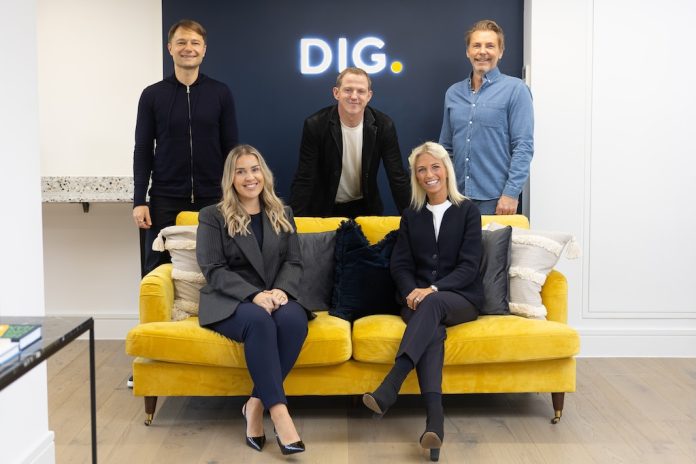The number of “operator VCs” — former founders turned VCs — in Europe has been increasing in recent years. This trend is common in the U.S., where the majority of VCs are former founders. In contrast, in Europe, most VCs come from banking or finance backgrounds. Some recent examples in Europe include Wise founder Taavet Hinrikus, Glovo founder Oscar Pierre (Yellow Fund), and Pitch founder Christian Reber.
After exiting MuleSoft to Salesforce in 2018 for a cool $6.5 billion, founder Ross Mason established DIG Ventures initially as a family office and later transitioned it into a VC firm. He partnered with co-founder and general partner Melissa Klinger, the former U.K. sales lead at MuleSoft. DIG has recently closed its second fund at $100 million, focusing on investing in B2B SaaS, AI, and cloud infrastructure startups at pre-seed and seed stages, primarily across Europe but also considering startups in Israel and the U.S.
The new fund has received backing from various LPs, including The Hillman Company, Granite Capital, Sofina, and Grove Street. It has also received investments from Datadog founder Olivier Pomel and several MuleSoft executives, among others.
Positioning itself as a hands-on, operator-led fund, DIG is led by former startup operators who can provide assistance in various areas, such as go-to-market strategy and execution.
In addition to Mason and Klinger, DIG’s team includes Rytis Vitkauskas, founder of YPlan and former partner at Lightspeed, as well as Scott Grimes, co-founder of Stackin’ and Uproxx.
DIG’s portfolio currently includes People.ai, Karat, Bubble, ComplyAdvantage, PlanetScale, Rasa, Taktile, Rossum, Flock, and Prophecy.
The fund has already started investing in companies such as observability platform Dash0, AI orchestration platform Nexos.ai, and enterprise middleware offering PolyAPI.
“After MuleSoft, I saw a big opportunity to come back to Europe and build an operator-led fund,” Mason told TechCrunch. “And we managed to figure out a strategy where we could pick and meet founders quicker and earlier than most other funds.”
“Founders tell us that we just engage with them on a conversational level, because we’ve come out of MuleSoft … We like taking very technical products and selling them well. And that is half the battle in this space,” Klinger added.
Highly technical products are the fund’s strong suit, but DIG also excels in go-to-market strategies. “Going from zero to one and actually helping package that and selling it is not something any VC can do — but we can,” Klinger said.
Mason believes the next major shift will involve enterprises building their own AI. “It’s a new arms race, especially with LLMs being built and run within enterprises … The foundation layer isn’t done yet, even though every vendor would love you to think it is. A lot will become packaged Open Source because they don’t want to send their data off to an LLM in the cloud where they have no control over where the information goes.”
Klinger sees significant potential in AI in Europe. “I think Europe’s a real dark horse in AI. We’ve got the talent at half the cost of the US. A lot of the brilliant research is coming out of our universities. The challenge we have is raising the amount of money that some of these AI-driven plays will need.”
In the U.S., former founders/operators (e.g. Peter Thiel, Paul Graham, Marc Andreessen) have become highly influential venture capitalists. With geopolitical shifts affecting economies and strong early-stage momentum in Europe, the “operator VC” market may see significant growth.




